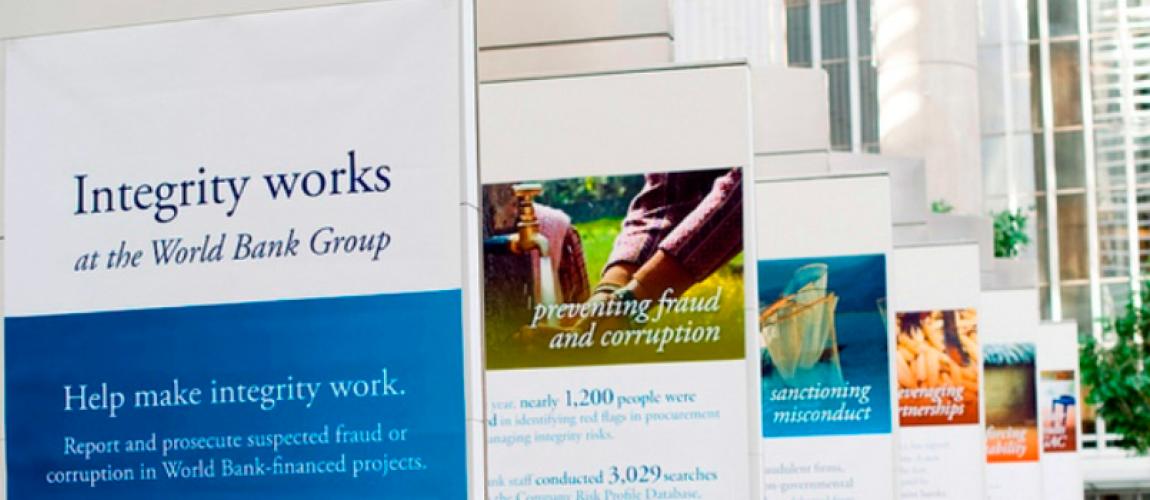Transparency, Good Governance and Anti-Corruption Mechanisms

Poor governance and corruption undermine the economies of developing countries as well as the World Bank's core mission of poverty reduction and disproportionately affect the poor. The World Bank has a fiduciary obligation to assure its own shareholders and stakeholders that funds are used for their intended purposes and so seeks to strengthen governance and anti-corruption measures in its borrower countries.
PPPs can be susceptible to corrupt activity if not carefully planned and designed, as with general public procurement. Prevention of corruption requires the integration of anticorruption approaches during project design. This page provides examples of some of the tools that the World Bank and other institutions employ to address the risk of corruption in infrastructure projects. also, go to Anti-Corruption and Freedom of Information Laws for examples of laws in developed and developing countries on this topic.
Another crucial area of reducing corruption in PPPs is by encouraging transparency in the bidding process, contract award and implementation.
The World Bank Group, in collaboration with the Construction Sector Transparency Initiative (CoST) and PPIAF has prepared A Framework for Disclosure in PPP (2015), expanding on a study and report of WBG in 2013 on Disclosure of Project and Contract Information in Public Private Partnerships, part of a larger G20 initiative.
There are many international initiatives to combat corruption that have direct relevance to infrastructure projects. Click on the following links: ResourceContracts.org, the online, searchable and user-friendly database of publicly available oil, gas and mining contracts from around the world that was developed by CCSI, together with the World Bank and Natural Resource Governance Institute (NRGI), now features contracts and documents from 90 countries; it just retrieved the first disclosed oil contract from Guyana from the public domain. Colombia - La Guajira Water and Sanitation project- Annex 11 of PAD (page 136) India - Rampur Hydropower Project (para 42 and Annex 6) Governments may be presented with unsolicited proposals for infrastructure projects by private sector entities. How to respond to unsolicited bids so as to protect transparency in the procurement process and recognize the initiative of the proponent, is typically difficult. A number of approaches have been developed. For more on this, go to Unsolicited Proposals. Through Output-Based Aid, aid can be conditional on seeing improvements in procurement processes and other initiatives designed to reduce the risk of corruption in Infrastructure projects. For more on this, go to the Global Partnership for Results-Based Approaches (GPRBA), formerly known as the Global Partnership on Output-Based Aid (GPOBA). Getting Infrastructure Right: A Framework For Better Governance UNECE Standard on a Zero Tolerance Approach to Corruption in PPP Procurement Strengthening Bank Group Engagement on Governance and Anti-Corruption, March 2009 UN/ ECE - Guidebook on Promoting Good Governance in Public-Private Partnerships (2008) Setting Standards for Communication and Governance: The Example of Infrastructure Projects Body of Knowledge on Infrastructure Regulation (BoKIR) - Regulation Process: Institutional DesignInternational Initiatives to Combat Corruption
World Bank Anticorruption Action Plans
How to manage Unsolicited Proposals
Output Based Aid
Learning and Training
Useful Links
Further Reading
Updated: October 13, 2022